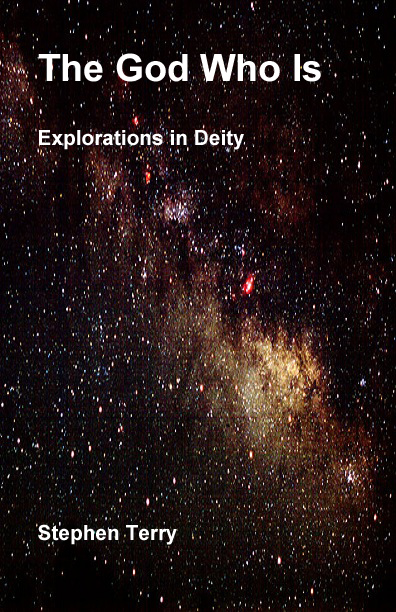Lessons
from Jeremiah
Stephen
Terry
Commentary
for the December 26, 2015 Sabbath School Lesson
 “Furthermore,
tell the people, ‘This is what the Lord says: See, I am setting before you the
way of life and the way of death. Whoever stays in this city will die by the
sword, famine or plague. But whoever goes out and surrenders to the Babylonians
who are besieging you will live; they will escape with their lives. I have
determined to do this city harm and not good, declares the Lord. It will be
given into the hands of the king of Babylon, and he will destroy it with fire.’”
Jeremiah 21:8-10, NIV
“Furthermore,
tell the people, ‘This is what the Lord says: See, I am setting before you the
way of life and the way of death. Whoever stays in this city will die by the
sword, famine or plague. But whoever goes out and surrenders to the Babylonians
who are besieging you will live; they will escape with their lives. I have
determined to do this city harm and not good, declares the Lord. It will be
given into the hands of the king of Babylon, and he will destroy it with fire.’”
Jeremiah 21:8-10, NIV
When we try to understand the words of the prophet
Jeremiah, we may feel there is a disconnect between the world he lived in and
our modern, “more enlightened,” time. We live in an age of computers, “smart”
phones, and near instantaneous communication with almost any point on the face
of the earth. Social media, like Facebook or Pinterest, as well as a whole host
of others, have done much to globalize our cultures into one homogenous society.
In spite of governmental attempts in some countries to hinder it, the entire world
is as near as those electronic devices that serve as portals to this information
overload. In my youth, encyclopedia salesmen went door to door selling sets of encyclopedias
to bring the world’s knowledge into the family home. Many families saw these
volumes as being essential to the education of their children. However, all the
information of every encyclopedia and dictionary ever printed pales in
comparison to the vast treasures of information available over the internet. As
a result, the computer or smartphone now occupies the place of intellectual
honor that was formerly held by those encyclopedias.
One might think that having the power of so much
information at our fingertips would usher in a golden age of understanding and
technological advancement. But instead of setting aside the fears of the past
to strive together for a future of hope and security, we find nefarious
terrorists using the technology to spread destruction and fear across the globe
in places they could only have dreamed of touching with their poison in the
past. Vicious ideologies spawned in the turmoil of the Levant not only catch
the attention of twenty-four-hour news services, but they even reach into the
bedrooms of our children who may encounter them while innocently “surfing”
social media sites. The potential for these ugly, brutish people to turn even
our own children against decency and to break the ties of familial influence is
frightening.
The thought of these black-suited thugs bringing their primitive
atrocities to our cities and towns has filled many with fear. As a result, we
see political candidates who try to capitalize on that fear for the next round
of elections, not only in the United States but in Europe and elsewhere as well.
Since these terrorists claim allegiance to a particular religion, some candidates
and their followers are even advocating banning all practitioners of that faith
from being allowed into our country. Such is the fear that exists that too many
see nothing wrong with that. Perhaps this harks back to the time at the beginning
of the 13th century, approximately 150 years after William the
Conqueror crossed the English Channel from Normandy, when Genghis Khan rose to
power over the Mongols and terrorized the world. Having an army that probably
never exceeded 100,000 men, he destroyed huge cities and routed armies much larger
than his, in part because he was able to instill fear and panic into his
enemies. He knew that fear was a powerful ally in his campaigns. Where
terrorists today induce fear by beheadings, rape, and torture, the Mongols were
said to have left pyramids of the heads of their decapitated victims outside
the cities they conquered.[i] Perhaps these modern day
black-clad warriors see themselves as resurrected Mongols. In any event, the
fear they have inspired in millions has far outweighed their size or military
capabilities.
In Jeremiah’s time, the terrorizing power was Babylon.
In order for us to more fully understand how Jeremiah was perceived by his
fellow Jews, perhaps we can do so from the perspective of our current fears.
Fear reigned in Jerusalem. The people felt that the idols they had chosen to
worship instead of the God of the Exodus were failing them. They perhaps felt
that they were not faithful enough to those idols.[ii] Therefore when Jeremiah
attempted to recall them to the true God, they may have thought that his doing
so was weakening their idolatrous faith even more and courting disaster. They
may have been too far gone down the path of false worship to be able to see the
truth in what Jeremiah was telling them. Nonetheless, God in His mercy does not
give up on His children. He continues to plead with them even after Jerusalem
was finally destroyed by the Babylonians.[iii] Perhaps it is this way
for us as well, and God never gives up on us. It is only our own inability to
see how far we have strayed that prevents us from coming to Him.
No longer able to see God as a part of their lives, some
among the Jews with influence upon the king perhaps urged calling for help from
the Egyptians. They saw military might as the answer to the Babylonian threat.
Like a Chihuahua who is unable to understand his size in relation to a Great
Dane and charges into battle against a foe able to finish him with one snap of
the jaws, the Jews seemed to be unable to understand the powerful nation they
were facing. Those who felt this way likely saw Jeremiah’s counsel to surrender
to the Babylonians as syphoning off the very troops they were depending on to
resist the enemy.[iv]
It was not surprising then that they reacted by throwing him into a muddy
cistern to perish. Their assault on Jeremiah differed little in its perspective
from the High Priest Caiaphas, centuries later, who decreed the death of Jesus
in order to save the nation.[v]
In order to understand this, we need only look to our present
climate of fear in the face of the threat from Islamic State terrorists. How would
we feel if someone claimed to be a prophet of God and told us that God wanted
us to surrender to these modern terrorists? By no means am I advocating this,
but the illustration serves our purpose to understand how Jeremiah was received
in his day. The Babylonians were so well known for their evil ferocity that
even the prophet Habakkuk was astonished that the Lord could use such people to
punish His children.[vi]
Even among our modern scourge there are some who claim they are doing God’s
will in assaulting a corrupt society, even annihilating it. The Babylonian
king, Nebuchadnezzar, made a similar claim through Nebuzaradan, the captain of
his imperial guard.[vii]
Perhaps we would do well to examine ourselves. Unlike
Jeremiah’s Jerusalem which had little incentive to return to God because of a
distorted spiritual perspective and a fear of what the Babylonians might do, we
may still have the opportunity to look at ourselves and what we have become in light
of what we might be as a result of a saving relationship with Jesus Christ. It
may not be too late for us. We may yet find our way back to that earnest love
of God that brought so many religious dissenters to North America in the 17th
century. They were willing to leave everything behind in Europe because of the
fervor of their faith.
In spite of our technological achievements, we find
ourselves unable to eradicate the threat that feeds our fear. Instead we find
ourselves, as “soft targets,”[viii] too often in the crosshairs
of the very thing we fear. So how do we overcome that fear and find peace
again? Perhaps by turning that fear over to the only one who truly understands
it – God. We are told that “God is love.”[ix] In that love is a power
that can overcome our fears. God’s love is perfect and that perfect love drives
fear away.[x]
This works not just for fear of things like terrorists, but also for very
personal fears. Are we afraid of what may happen at work today? Give it to God.
Are we afraid for an upcoming medical procedure? Give it to God. Is our financial
situation giving us fear? Again, give it to God.
So many things seek to threaten us and draw our minds
away from the One who created us and loves us. He wants to give us peace in
place of our fears.[xi] Dear reader, would you like
that peace? It can be yours. Simply take a moment to tell God that you would
like that peace and ask Him to take your fears and help you receive it. Allow
Him to come into your heart, and you will find a peace that will change your worried
heart. Instead of fear, He desires to give you hope and a future.[xii] Won’t you ask him to do
that today?
